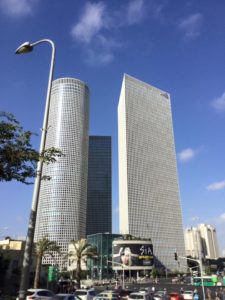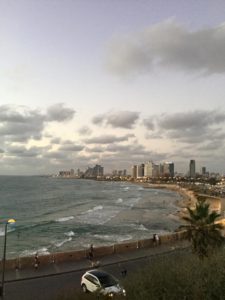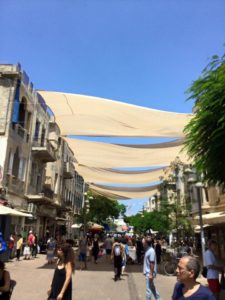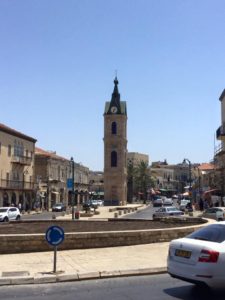
Mark Twain once wrote, “Travel is fatal to prejudice, bigotry, and narrow-mindedness,” and, after spending the summer working for the city government in Tel Aviv, I certainly have a renewed appreciation for this adage.
In Tel Aviv, it is possible to walk twenty-five minutes and go from one of the world’s leading centers of high-tech innovation, Rothschild Boulevard, to one of the world’s oldest cities, Jaffa, with its ancient alleyways and historic mosques, churches, and synagogues.
In Tel Aviv, it is also possible to fully experience Israel’s diversity and multiculturalism. While Tel Aviv, a city of over 400,000 people, is 95 percent Jewish, these Jews came to Israel from dozens of countries across the world and represent a mosaic of traditions and customs from Ethiopia’s historic Jewish community  the Beta Israel, to Yemenite Jews, to recent Russian-speaking immigrants from the former Soviet Union.
the Beta Israel, to Yemenite Jews, to recent Russian-speaking immigrants from the former Soviet Union.
Other faith traditions are also felt in Tel Aviv. Five times a day in Jaffa, one can hear the Islamic call to prayer sounding from the neighborhood’s many mosques. Near the city’s highest point stands the 19th century era St. Peter’s Church, which offers Mass in Hebrew, Polish, Spanish, English, and Latin. Just down a hill, the Armenian Church’s St. Nicholas Monastery has been a religious site for over 1,000 years. I will never forget the sound of the monks chanting there, or the happiness I saw among families breaking their Ramadan fast on the nearby shores of the Mediterranean.
Tel Aviv is not all about religion, however. In fact,  many residents here are secular. In Tel Aviv, there are more bars than synagogues, and clubs do not stop the music until well into the morning hours. Nightlife in the city is internationally recognized and varied. Some of my favorite places included a Mexican-Korean themed bar and Kuli Alma, a cross between an art museum and club.
many residents here are secular. In Tel Aviv, there are more bars than synagogues, and clubs do not stop the music until well into the morning hours. Nightlife in the city is internationally recognized and varied. Some of my favorite places included a Mexican-Korean themed bar and Kuli Alma, a cross between an art museum and club.
Tel Aviv is also home to a strong LGBT community and hosts several clubs and bars which focus on this demographic. I have never been in an area with more pride flags than Tel Aviv.

I won’t forget dancing on Frishman Beach with French tourists and expatriates to celebrate Bastille Day, or stopping to take shots of vodka with two Russians who discovered one of my friends could speak their language. This sense of camaraderie between everyone, even random strangers, is one of my favorite things about Tel Aviv.
I was also fortunate to be a part of an amazing team at Tel Aviv Global. Together with my coworkers, I got to experience some of the city’s most notable museums and cultural institutions. T he most meaningful place for me was a small theater company dedicated to bring Je wish and Arab actors together.
Every day, the non-stop city of Tel Aviv is showing that coexistence, tolerance, and peace is possible in the Middle East. I sincerely hope someday this reality will spread everywhere in the region.
